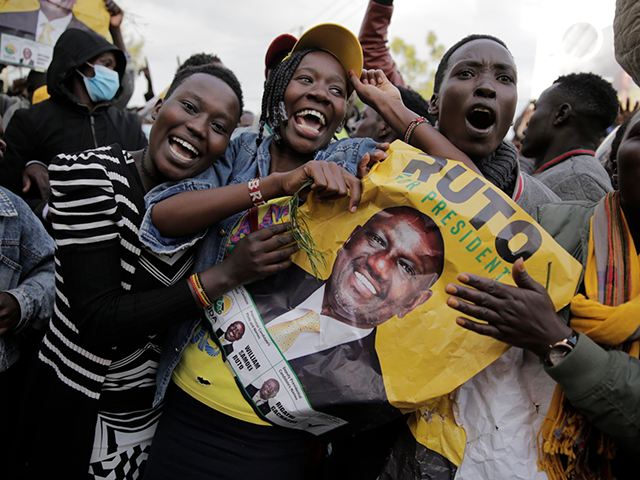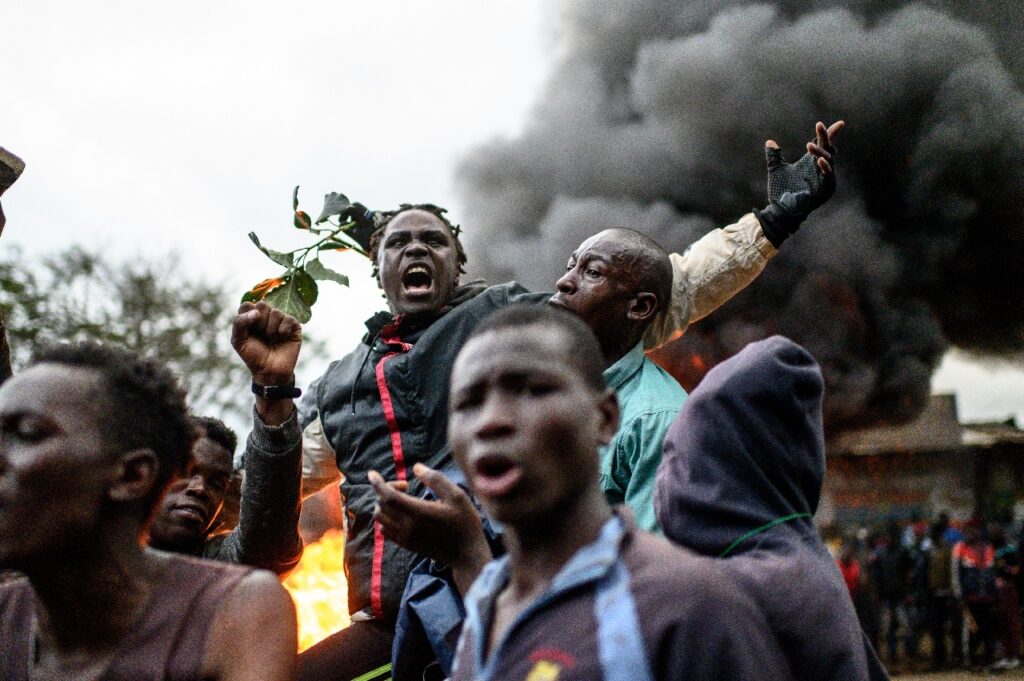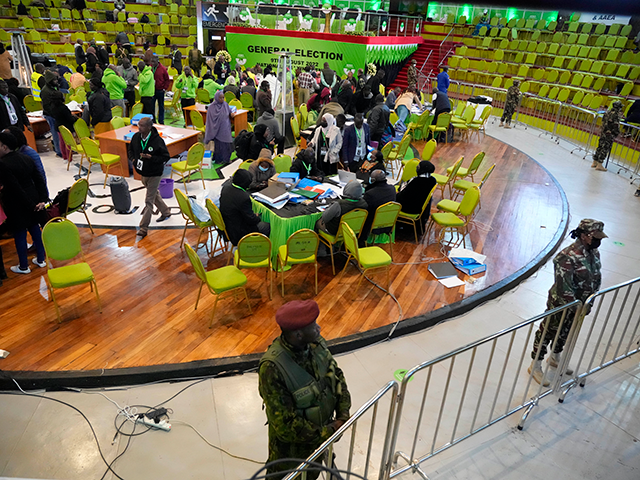The Kenyan national police service’s investigative unit, the Directorate of Criminal Investigations (DCI), allegedly determined in recent days that three Venezuelan nationals had illegal access to Kenya’s electoral commission servers five months ahead of the country’s general election on August 9, during which a disputed presidential vote occurred, Kenya’s the Nation newspaper reported Monday.
The Nation reported the development on August 29 loosely citing an alleged “forensic analysis” by Kenya’s DCI that it said it had “learnt” of, though the newspaper did not cite specific or anonymous sources nor did it state how it obtained the alleged information.
The newspaper reported:
The three Venezuelans who were arrested upon landing in Nairobi two weeks before the General Election had not been contracted by the electoral commission but had access to its servers five months before the disputed polls, a forensics analysis shows.
The analysis, of computers confiscated from Salvador Javier, Jose Gregorio and Joel Gustavo by the Directorate of Criminal Investigations (DCI), shows that the three were among dozens of non-Independent Electoral and Boundaries Commission (IEBC) staff who had extensive access to the agency’s servers, the Nation understands.
The Nation said that the Kenya DCI’s alleged investigation into the Venezuelans’ access to Kenya’s electoral commission servers “is currently among various electoral fraud matters being investigated by the DCI, whom the Azimio coalition wants to be summoned to the Supreme Court to testify in their petition.”

Supporters of Deputy President and presidential candidate William Ruto celebrate his victory over opposition leader Raila Odinga in Eldoret, Kenya, Monday, Aug. 15, 2022. (AP Photo/Brian Inganga)
The newspaper referred to Raila Odinga, who was the presidential candidate for Kenya’s opposition Azimio la Umoja-One Kenya Coalition party in the country’s August 9 general election. Odinga is currently contesting the results of the August 9 presidential vote. The chairman of Kenya’s election commission, Wafula Chebukati, declared current Kenya Deputy President William Ruto the winner of the presidential election on August 15 with 50.49 percent of the vote, though “[f]our out of the seven commissioners disowned the result,” Reuters noted on August 30.

Supporters of Raila Odinga protest against the results of Kenya’s general election in Kibera, Nairobi. (AFP)
Odinga alleged that the vote’s result was fraudulent immediately after the final tally was announced and has since submitted an official petition to Kenya’s Supreme Court contesting the election’s result. Kenya’s Supreme Court is expected to issue its verdict on the matter on September 5.
Odinga on August 22 specifically alleged that Venezuelan nationals had interfered in Kenya’s latest presidential election. Speaking to a crowd of his supporters, Odinga said his legal team had “enough evidence to show foreigners, those people from Venezuela, were brought into the country to try to steal our victory but it won’t be possible.” Odinga cited the alleged interference of Venezuelans in Kenya’s August 9 presidential in his official Supreme Court petition, according to the Nation.
“In the petition, Mr Odinga’s legal team argues that three Venezuelans had the ability to remotely access and manipulate [the Kenya] IEBC [Independent Electoral and Boundaries Commission]’s data,” the newspaper noted on August 22.
The Nation published an excerpt of the petition, which read:
Combined with the capability of the foreigners and anyone in possession of the contents and information in the electronic devices to remotely access and manipulate the entire IEBC data; and the manifest discrepancies and irregularities manifest during the General Election and the tallying, verification of count and declaration of the presidential election result; it is the inevitable conclusion that not only was the presidential election not secure, it is not verifiable, accountable, neutral or transparent.
IEBC Chairman Wafula Chebukati had claimed that the three Venezuelan nationals recently arrested by Kenyan authorities were “contracted by IEBC to provide support on behalf of Smartmatic International, the company contracted to provide electoral management technology by the commission,” the Nation recalled on August 29.
“Detectives who have been on the case since July now believe that was not the case, and that the three worked for a different entity linked to the North Eastern politician,” the newspaper noted on Monday, referring to an unnamed Kenyan politician.
Kenyan police arrested the still-unnamed Venezuelans in question at Nairobi’s Jomo Kenyatta International Airport in late July after authorities found Kenyan election materials stored inside their luggage. The Venezuelans had flown to Nairobi from Istanbul, Turkey.
“Smartmatic, the Greek company that won the tender to run the all-encompassing Kenya Integrated Elections Management Systems (Kiems), also insisted that three Venezuelans arrested at the airport with election kit stickers in their luggage were their full-time employees through a subsidiary company,” the Nation noted on August 22.

COMMENTS
Please let us know if you're having issues with commenting.